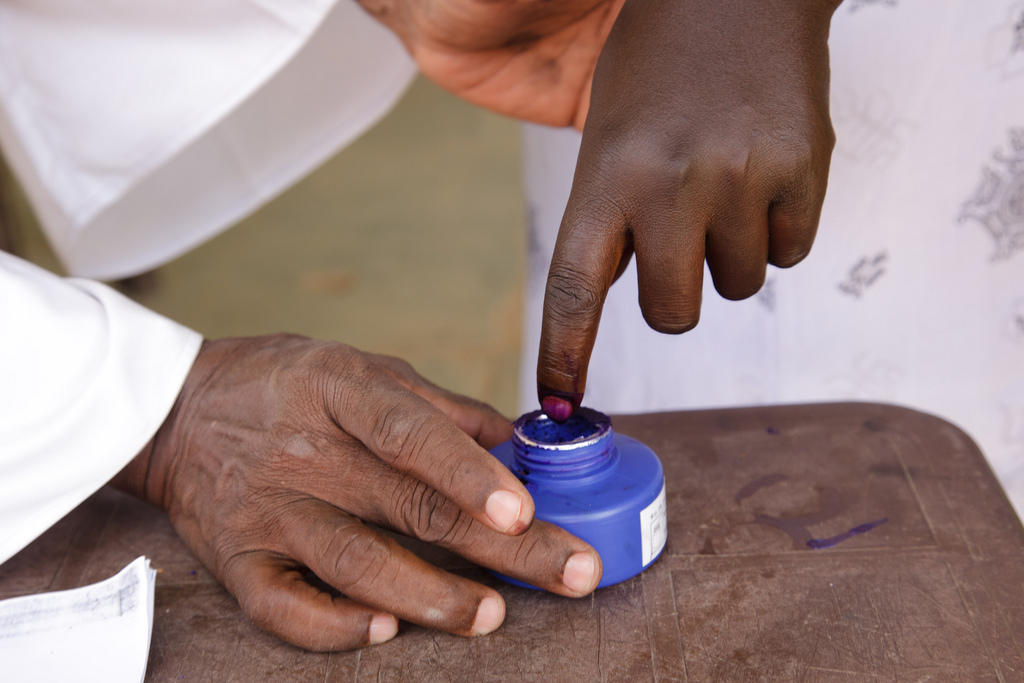In 2005, the Comprehensive Peace Agreement (CPA) formally ended the two-decade long civil war between the Government of Sudan and Sudan People's Liberation Movement (SPLM). USIP provided training and support to Sudanese and Southern Sudanese institutions and civil society members to help ensure a peaceful transition out of conflict, as well as analysis to assess progress toward this goal.

In addition to supporting the development of governance structures across the entire country and planning to share oil resources, the agreement mandated steps toward a referendum on South Sudanese independence.
In keeping with the CPA, Sudan undertook a series of steps to promote peace, encourage unity, and provide to southern Sudan limited autonomy. A Government of National Unity in Khartoum and autonomous Government of Southern Sudan in Juba formed in 2005. In April 2010, Sudan held multiparty elections; in January 2011, the country held a referendum, resulting in 99% voting for independence; and on July 9, 2011, South Sudan became the world's newest state. USIP has worked both in the field and in DC to promote a peaceful transition from conflict through a range of projects and initiatives.
Scenarios for Sudan: In advance of Sudan's January 2011 referendum on independence for southern Sudan, USIP hosted three workshops in April and May 2009 to develop scenarios focused on plausible developments over a two and a half year period.
Preventing Electoral Violence in Sudan: Prior to the April 2010 multiparty elections throughout Sudan and southern Sudan, USIP conducted electoral violence prevention (EVP) training with participants, representing a range of key institutions and stakeholders, to build conflict resolution and citizenship skills.
Referendum Violence Prevention: Following from the success of the EVP workshops, USIP staff developed a referendum violence prevention workshop curriculum that incorporated case studies of violence before, during and after elections; negotiation skills training; and civic education.
Eye on Sudan: USIP monitored developments leading up to the January 9-15, 2011 referendum in Sudan to decide whether the southern Sudan region should remain a part of Sudan or become an independent country.
Eye on Two Sudans: South Sudan gained independence on July 9, 2011. USIP monitored developments preceding and following this dramatic event.




